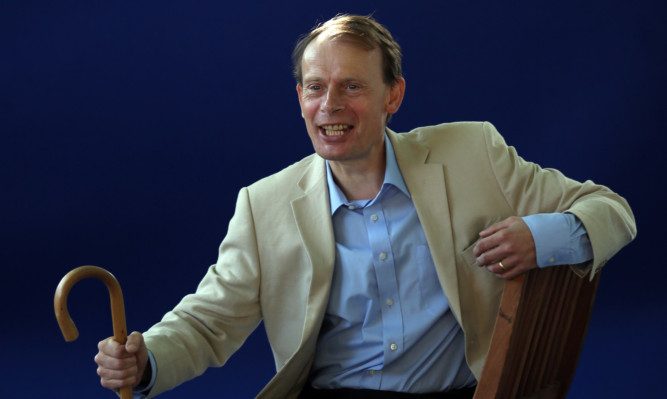Broadcaster Andrew Marr has made his first appearance at a public event since he suffered a stroke.
The BBC presenter attended the Edinburgh International Book Festival to launch a revised version of his 1992 work The Battle For Scotland.
Marr, who was warmly received at the sold-out theatre, told his audience: “This is the first time I have had a big event like this since the stroke. I have no idea how it is going to go.”
The former political editor suffered his stroke more than seven months ago, spending two months in hospital and undergoing extensive physiotherapy to help him walk.
He said he updated his book, which explores the issues surrounding Scottish independence, using a dictation system.
“I can’t type because my left arm is still no good,” he said. “I used to touch-type but I can’t any more. I used to think I could only think through my fingers.”
During a lively discussion chaired by journalist Gavin Hewitt, Marr commented on the tone of the independence debate so far, praised the “genius” of Scotland’s First Minister Alex Salmond and warned against using current polls to predict the result of the 2014 referendum.
Commenting on the tone of debate, Marr touched on the experience of UKIP leader Nigel Farage, who was hounded by protesters during a visit to Edinburgh earlier this year.
“There is a very strong anti-English feeling (in Scotland), everybody knows it, there always has been,” he said.
“If you go back to the origins of the SNP, the origins of home rule, anglophobia was as well entrenched then as it is now.
“I don’t think it is particularly serious most of the time, but it can become serious, it can become toxic.”
